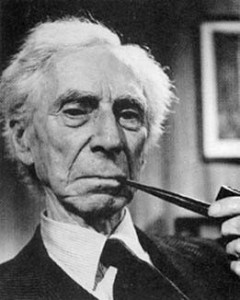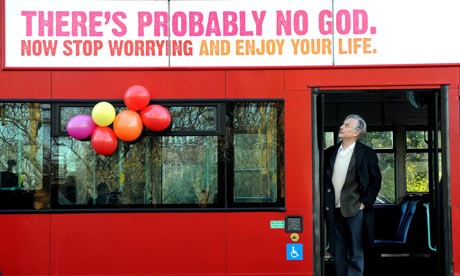Katherine Angel is the author of Unmastered: A Book On Desire, Most Difficult To Tell (Penguin/Allen Lane, Farrar Straus & Giroux). She is a Lecturer in Creative Writing at Kingston University, and is completing her second book, an exploration of subjectivity and selfhood in contemporary sex research. She has a PhD from the University of Cambridge’s History and Philosophy of Science Department, and has held Wellcome Trust and Leverhulme research fellowships at the University of Warwick and Queen Mary, University of London. Her writing has appeared in The Independent, Prospect,The New Statesman, Aeon, The Los Angeles Review of Books, and Five Dials, and she reviews for the Times Literary Supplement and Poetry Review.
Katrina Hutchison and Fiona Jenkins (eds), Women in Philosophy: What Needs to Change? (Oxford: Oxford University Press, 2013).
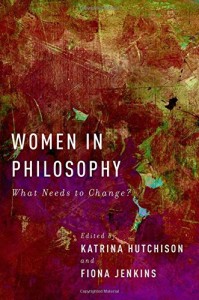 It took me ages to start writing this review. I read Women in Philosophy quite fast, buffeted by many feelings: frustration, sadness, rage. I felt not just frustration at the evident tenacity of philosophy’s problem with women, as documented in the book, nor just exasperation with the disingenuous, self-serving responses that so many in the field have persistently offered, but also a sense of unease at the act of engaging, philosophically, with those indifferent to the problem, or offering woeful apologies for it. I began, in fact, to be fascinated by how some of the book’s essays implicitly raise this question: in engaging with a problem, how much do you engage, patiently, doggedly, with blinkered and lame machinations? Do you patiently invoke every weak and problematic argument in order to dismantle it? Or do you turn your back on these?
It took me ages to start writing this review. I read Women in Philosophy quite fast, buffeted by many feelings: frustration, sadness, rage. I felt not just frustration at the evident tenacity of philosophy’s problem with women, as documented in the book, nor just exasperation with the disingenuous, self-serving responses that so many in the field have persistently offered, but also a sense of unease at the act of engaging, philosophically, with those indifferent to the problem, or offering woeful apologies for it. I began, in fact, to be fascinated by how some of the book’s essays implicitly raise this question: in engaging with a problem, how much do you engage, patiently, doggedly, with blinkered and lame machinations? Do you patiently invoke every weak and problematic argument in order to dismantle it? Or do you turn your back on these?
There are very few women in academic philosophy. The numbers, as quoted in the book, are closer to those in STEM disciplines than other humanities subjects. In the US, figures from 2003 and 2009 show that women make up 21% of academic philosophers – comparable to figures of 20.6% in the physical sciences and 22.2% in the life sciences in 2009. In (relative) contrast, however, women make up 41% of academics in the humanities as a whole. The figures for the overwhelming whiteness of philosophy, as for many humanities disciplines, must be equally, if not more, dispiriting; and the book acknowledges the racial disparities as similarly pressing.
In the introduction to the book, Jenkins and Hutchison write of the feelings of frustration and anger amongst women about the discipline’s paltry success in improving this imbalance. They write that feelings of rage ‘should not be forgotten’, but that ‘training in the discipline’ can in fact ‘become a resource for careful analysis of the questions at stake.’ And yet, the question of what the discipline is – what methods it prioritizes, what it considers to be legitimate subject-matter, and what kind of world-view it assumes – is precisely what is at issue. The volume itself is torn between approaches to gender imbalance which, in their careful discussion of potential causes and solutions, remain rather timidly respectful of the discipline as a whole, and those which mount more substantial objections to the very core of the discipline.
The exciting essays in the book are the ones that pursue, hard, the question of philosophy’s own self-sustaining image, fundamentally challenging the cultural assumptions that might prevent women from penetrating the field more fully, and men from taking the problem seriously. Any bafflement at the fact that, despite good intentions and little overt desire to exclude women from philosophy, the numbers nonetheless remain pathetically low, needs to be replaced by a serious scrutiny of the culture of a discipline which, in the very manner in which it conceives itself – its rationale, its raison d’etre, and its everyday modus operandi – inherently resists a mode of thought that could enable both a clearer perception of why the problem has arisen, and of what might be done to change it.
But, perhaps understandably, as part of a discipline and a community, professional philosophers themselves undertake this task at times ambivalently, or at least cautiously. An example is Marilyn Friedman’s chapter in the book. Given that philosophy is often conceived as the exercise of reason in the pursuit of wisdom, she writes, specific images of reason might work implicitly to exclude women. Philosophical reason is often represented as adversarial dialogue, as a contest of wills; an image prevails of the philosopher as a gadfly, a clever reasoner, challenging the errors and confusions of others. The emphasis on adversarial engagement, or on gadflies, or on wise contemplative sages is worrisome because students and/or their teachers may find it harder to see women in these roles, and women themselves, because they are not encouraged to, might not go around thinking of themselves as masterful thinkers achieving synoptic insight, nor as fearsome tearers-down of the confusions of others.
Friedman’s article, though, depressed me. It strikes me as almost unbearable that a woman philosopher has to write an article including a sentence such as this: ‘What are some of the counterbalancing benefits of promoting women’s greater participation in professional philosophy?’ Friedman’s careful, cautious reasoning – ‘First, current female students in philosophy classes might be more likely to be attracted to the field if women were recognizably present in substantial numbers…; Second, most women who are already professional philosophers would likely benefit from an increase in their numbers in the field’ – comes to seem like a symptom of the problem. Her gentle delineation of the problem feels like a way of keeping a resistant community on side; of not alienating them, of not raising their hackles. She writes that these reasons already presuppose that it is valuable to increase the numbers of women in philosophy; ‘We still need independent reasons for thinking that an increase in the number of women in philosophy will, at the very least, improve philosophy and, it is to be hoped, also be good for women.’ And so ‘My third and most important suggestion’ is ‘an independent reason to increase the number of women in professional philosophy, namely, that doing so would improve philosophy.’ Finally! We get to an acknowledgement that perhaps this discipline, its very constitution, is shot through with problems itself. But the manner in which this is done illustrates something of the methodological ambience permeating so much philosophy; a kind of hand-wringing, a slavish love of distinction-drawing. Friedman’s careful, hand-holding raising of this possibility – that there might be something wrong with a philosophy which enables such marginalization of women, and one which is so resistant to self-reflection and change – is an instance of the hemmed-in, constrained nature of philosophical argument. The mania for outlining steps (‘this suggestion has two parts’) is in one light simply the mechanics of clear writing; in another, it is the discourse of someone constantly pre-empting the interruptions of a pedant bent on pointing out inconsistencies, of finding a smuggled-in premise, of discovering a non sequitur. It’s a discourse that is anxious not to provoke the ire, irritation, or dismissal or the prototypical philosopher. Friedman’s chapter is haunted by the ever-hovering possibility of a clever young man pointing out a flaw in her argument; where the pernickety pointing out of flaws is a substitute for deep engagement with a big question of huge political importance – who gets to speak and why. That women end up having to write in such constrained tones about such an important flaw in the discipline is evidence of the discipline’s flaws to start with.
A similar atmosphere besets Jennifer Saul’s chapter – an interesting discussion of implicit bias and stereotype threat. Anonymous review of journal articles has, research suggests, led to a 33% increase in representation of female authors; implicit bias is clearly at work, regardless of whether reviewers see themselves as sexist readers. Stereotype threat ensures that, when the low numbers of women are emphasized or drawn attention to, women underperform. If circumstances elicit for someone an awareness of their stigmatized and under-represents status – circumstances that, in male-dominated (and overwhelmingly white) environments, will repeatedly, endlessly do – then they will underperform. As Helen Beebee explains in her chapter, ‘doing or saying anything that might suggest that you think women are worse at philosophy than men is not needed, any more than seven-year-old girls need to be told that girls are worse at maths in order to underperform on the maths test. They just need to be reminded that they are girls.’
But again, the hemmed-in sense of women having to gently make the case for why this matters is troubling. Saul asks: ‘why should philosophers care?’, and answers that implicit bias and stereotype threat ‘demand action from philosophy simply on grounds of concerns for either a) fairness or b) philosophy, even philosophy as traditionally conceived. No particular concern for women, for feminist philosophy, or even for enriching philosophy with a diversity of perspectives is needed in order to motivate action on the basis of these phenomena.’ There is something shocking about the possibility of writing this; it functions as a reassurance, to an audience hostile to reflecting on itself, that they don’t have to care about women’s experience to pay intellectual attention to these phenomena.
Some chapters are bolder in tone. Fiona Jenkins, in ‘Singing the Post-Discrimination Blues: Notes For a Critique of Academic Meritocracy’, discusses the fact that meritocracy often ends up reproducing the status quo and the dominance of elite groups. It is a common experience that attempts to improve gender balance (or indeed racial balance) are construed as a threat to or a dilution of quality (a concept troublingly laden with notions of purity and mixity). Jenkins argues against seeing gender equity as ‘an “add-on goal” divorced from “aims of excellence”’, where it then ‘seems to compete with selection for qualities presumed to be essential to the discipline’. She suggests instead that the idea of what is essential to the discipline is what needs to be examined, and frames the issue as one of asking the discipline to imagine more inclusive futures for itself. She does this by refusing the way philosophy tends to cast gender as a political/moral consideration external to the ‘neutral and impartial deliberations of academies’. The gendering of philosophy, Jenkins argues, ‘has gone hand in hand with the marginalization of certain orders of critical questions, including those of feminist theory, within the discipline’. Jenkins’ approach, then, is that much more radical and questioning; it looks to examine and change philosophy’s own self-conception and its own content, rather than taking philosophy’s self-rhetoric as a given and tinkering about at the edges, idly wondering why women don’t excel within a field whose rationale, content, and self-image are simply taken for granted as a necessary, un-historical given. In effect, Jenkins suggests that philosophy thinks about the production of knowledge in such a way that it ‘rules out the very relevance of gender in the production of knowledge’. Hence its lackadaisical response to the problem of the dominance of men in philosophy.
There are many interesting chapters in the collection; Dodds and Goddard, as well as Mackenzie and Townley, raise the issue of listening to student experience, and changing details of the curriculum. Dodds and Goddard ask: ‘Are the conceptual issues with understanding personal identity really best captured by examples involving standard-bearers in battle or Martian teletransportation?’ And Mackenzie and Townley argue that ‘some students may be well placed to identify some of our unconscious biases, as they might be highly sensitized in relevant domains’ – perspectives that could do some work in undermining some of the current glibness about students’ political awareness, glibness encapsulated in claims that today’s students are coddled and bullying in their interventions into the way universities are run and the kind of knowledge and perspectives they give space to.
Samantha Brennan’s chapter defends the significance of micro-inequities, arguing that an individualism about acts and their results prevents us from seeing cumulative harms – phenomena such as gestures, tone of voice, patterns of interruption, all the ‘little issues’ that can accumulate in a person’s experience of an environment until they reach breaking-point, and their reaction often cast as an over-reaction because it doesn’t explicitly reveal the sheer multitude of previous micro-harms. (Claudia Rankine discusses analogous processes in relation to racism, in her reflections of Serena Williams, in her award-winning Citizen.) Brennan also discusses the detailed phenomena that can affect how a particular philosopher might be seen by peers and seniors: she asks whether ‘those of us who are socialized to smile, to always make others comfortable, can ever really look smart in that deep-in-thought, furrowed-brow kind of way’, or ‘if we can “hear” soft voices, southern accents [she means American south; the UK equivalent would be northern accents], and lilting speech as “smart”’.
Justine McGill, in a fine chapter, casts these problems in terms of ‘repeated experiences of having speech acts fail’. She argues that ‘the gendered aspect of embodied experience is something that must be recognized and addressed, not dismissed as irrelevant to philosophical achievement’. It is, she suggests, ‘a privileged male philosopher’s fantasy’ to believe that ‘his body doesn’t matter’. Undeniably true: not least, the experience of being in a room dominated by men, not feeling conscious of one’s gender as one walks into a seminar. And Michelle Bastian disputes the assumption that embodied experience makes little difference to the philosophy one produces by reflecting on the experience of time for women in philosophy; women, she argues, are ‘continually refused a place in the flow of philosophy’s time’.
I studied philosophy, two decades ago, in Cambridge. There was a lot to feel uncomfortable about, to say the least – some of it to do with the bizarre, self-perpetuating and self-mythologising ethos of Cambridge itself, and some of it to with the particular culture of analytic philosophy that characterized the department there. Occasionally, a ‘special paper’ on feminist philosophy was allowed to feature on the syllabus; there was a distinct sense of this eccentricity, pushed by one of the few female philosophers on the faculty, being tolerated with raised eyebrows by colleagues. I had some very supportive and encouraging teachers, though increasingly I felt baffled by what exactly this discipline was, frozen in time, insulated from other critical thought. Moreover, I had repeated experiences of discomfort and alienation; I was the only woman in a philosophy of logic lectures, week in week out, taught by a professor who was a total letch, and made me feel extremely uncomfortable by directing his entire lectures at me, the only woman in a room of about 80 men. In one particularly delightful episode, an esteemed Nietzsche scholar walked around the lecture room on the first day of classes, stopping to chat to his acolytes, and came to my desk, where I sat with another woman (the only two in the room); he stood there for what felt like an age, looking at us with a withering contempt, bordering on disgust. The message was clear. I had been told that he wouldn’t supervise us because we were women; I assumed someone else would be available to teach us creatures; no-one was. I still got the top first in my year.
That felt satisfying; but also meaningless, because a large part of me did not want to be in this constrained, reactionary club, did not want to endorse the ethos, did not want to be part of a community that did not challenge the indifference or hostility of many of its members to the well-being of its women students. I left philosophy, migrating into various departments which, while beset by familiar gender problems, at least acknowledged to some extent the importance of feminist scholarship, as well as their own historical and geographical specificity as disciplines. I have long had an ambivalent and complex relationship to academia, in part because of an emerging writerly identity that pulled me away from ultimately identifying enough with any particular discipline to really want to make a place within it. But I’m relieved that I don’t have to confront these questions in a discipline whose very identity is both so entangled with the problem itself, by casting itself as a supremely neutral method of cleverness, and so invested in being baffled and dismissive of the possibility of its entanglement. A philosophy over-identified with a naïve picture of the discipline as simply the pursuit of wisdom and the interrogation of thought, without location, without context, without constitutive characteristics that allow it to understand itself as situated, contingent, and flawed, is exhausting to behold. Imagine a lifetime of being patronised by advocates of this naivety! Thank God I made my escape early.
In her chapter, Beebee notes the dominance of ‘argument-as-war’ metaphors in philosophy, and a tenacious notion of philosophy as a kind of performative virtuosity. She also queries the accusation that suggesting that an atmosphere of combative virtuosity might ‘drive women out’ of philosophy is ‘demeaning to women’. I too have long found this accusation self-serving. Whether or not a culture of performative combativeness is due to a discipline’s domination by men – and whether or not aggressiveness is a characteristic of men more than of women – the point is that this accusation (that it’s insulting to women to say they cannot tolerate combativeness) in fact assumes that it is weak not be able to cut it in this environment. The more relevant issue is, I think, that of judging a culture to manifest an ethos that you consider itself demeaning. I despise the self-satisfied culture of going in for the kill because I hold to a different set of principles; I don’t consider ‘tearing an opponent down’ for show to be a virtue, and, moreover, I am aware of how the romanticisation of this combativeness relies on an experience of not being in a marginalized group. Men and women, and whites and people of colour, have vastly differing social experiences; an attachment to a culture of triumphalist take-downs involves a refusal to consider how the dynamics of such take-downs look and feel to those in the minority, given the unequal demographic profile of the community. In other words, this attachment relies on a refusal on the part of the dominant group to acknowledge its dominance. I made my way out of philosophy because I knew its atmosphere of combative virtuosity to hide self-serving universalist premises, and because I found this its atmosphere to be beneath me; to be depressing, limiting, and not conducive to interesting thought or conversation. There’s nothing demeaning about not wanting to be part of a culture that you disrespect.
Feminist philosophy is a large field, but has not persuaded the discipline as a whole to rethink the philosophical categories and intuitions that are cast as being universal, self-evident but are in fact dependent upon the particularities of the ‘typical’ philosopher: male, white, middle-class. In fact, philosophy as a discipline has tended to remain deaf to the swathes of work in some of its own fields as well as other disciplines – feminist philosophy; standpoint epistemology; the philosophy of science; the history of science, medicine and psychiatry; the history of sexuality; sociological studies of knowledge and “science studies”; anthropological and ethnographical studies, to mention just a few – that have established that method and content are not unrelated; that the location and context of knowledge production shapes that knowledge itself, as well as its reception and journey through the world; that who makes knowledge matters to what knowledge is made, and to where it goes; that time, place, gender, race, socioeconomic status, matter. Not just the Foucaults and Kuhns of the much-disputed boundary wars of philosophy-history, but also some of even analytic philosophy’s own darlings – Searle and Wittgenstein – articulated insights that spawned entire approaches to the history of thought which emphasized the crucial importance of culture, context, and ethos to what many have longed to see as unsullied by such messiness.
Dodds and Goddard, in their chapter, discuss a conception of philosophy as ‘not concerned with the particular, with the contingent’, as requiring personal opinion ‘to be overcome or to be transformed’ (this is quoting Gatens 1986). This affects, they suggest, ‘the capacity for feminist challenges to be heard by philosophers as philosophy, and for these challenges to inform developments in philosophical argument or practice’. That the feminist philosophical challenges to philosophy remain unheard by the core of the discipline is on a disturbing par with women’s repeated experiences of ‘having speech acts fail’ (as Jenkins puts it) – for example, having a significant question interpreted as a naïve demand for help, or being repeatedly talked over and interrupted in discussions. McGill invokes the work of Rae Langton and Caroline West on pornography as a form of silencing of women; as a language game that ensures that there will be certain speech acts that women ‘can no longer successfully or easily perform’. Drawing on their analysis, McGill suggests that women’s speech is commonly either ‘ignored, treated as incompetent’ or ‘heard as if it had been scripted by a man’.
Sadly, no discipline is free from these dispiriting dynamics. But some are worse than others. The authors in this collection suggest various piecemeal solutions that will help the dire situation. They, presumably, want to stay in the field. But the suggestions at times feel to me too accommodating; as if courage has been lost. My response is more violent, more sweeping: ditch philosophy! What is this absurd discipline, this remnant of a positivist idealisation of a science whose positivism has been shown by all the disciplines worth taking seriously (including, in fact, the philosophy of science, much of which owes more to the history of science and the sociological and anthropological study of scientific knowledge) to be illusory and misplaced; what is this discipline that refuses to look at itself, that displays an obtuseness, a lack of historical self-awareness that should make it, even by its own lights, blush? I want no part of it; I almost think that trying to improve, by small, non-alienating gestures, this small-minded discipline, is a waste of time. I want to raze it to the ground and start again.
Follow Katherine Angel on Twitter: @KayEngels
Read Katherine Angel’s review of Ronald de Sousa’s Love: A Very Short Introduction for the Cultural History of Philosophy blog.
undermine the enemy morale had been developed into a regular technique…


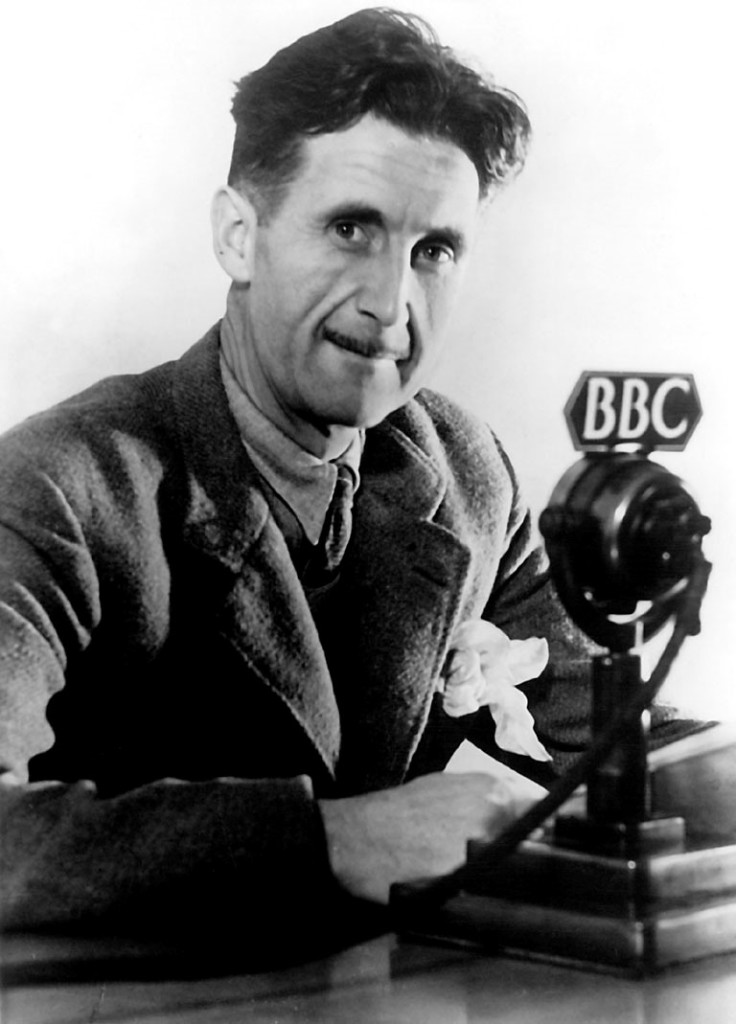
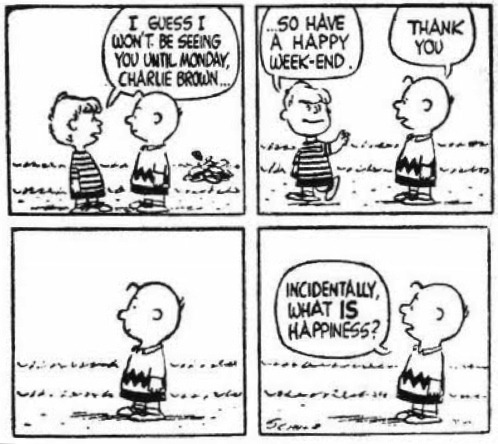



 first recorded in 1802, whilst radical reform was a current phrase since 1786. It was not until 1921 that the word radical gained the connotations of unconventional. Nowadays radical generally means relating to or affecting the fundamental nature of something; far-reaching or thorough. Radicalism stems from 1817 coined by no other than Bentham himself in his “
first recorded in 1802, whilst radical reform was a current phrase since 1786. It was not until 1921 that the word radical gained the connotations of unconventional. Nowadays radical generally means relating to or affecting the fundamental nature of something; far-reaching or thorough. Radicalism stems from 1817 coined by no other than Bentham himself in his “ m, Gowin and those in the philosophical radicalism movement calling for, this remains a question to be answered the short and perhaps hugely sweeping answer would be that it was a group of men trying to solve mankind’s qualms through rationality, but embedded in the longer and perhaps more accurate answer was individuals trying to reform and change society.
m, Gowin and those in the philosophical radicalism movement calling for, this remains a question to be answered the short and perhaps hugely sweeping answer would be that it was a group of men trying to solve mankind’s qualms through rationality, but embedded in the longer and perhaps more accurate answer was individuals trying to reform and change society.





![“Stark authority was pitted against the subjects' [participants'] strongest moral imperatives against hurting others, and, with the subjects' [participants'] ears ringing with the screams of the victims, authority won more often than not.”](http://teachingblogs.history.qmul.ac.uk/hst6347/wp-content/uploads/sites/2/2016/02/Milgram-Experiment-300x206.jpg)









